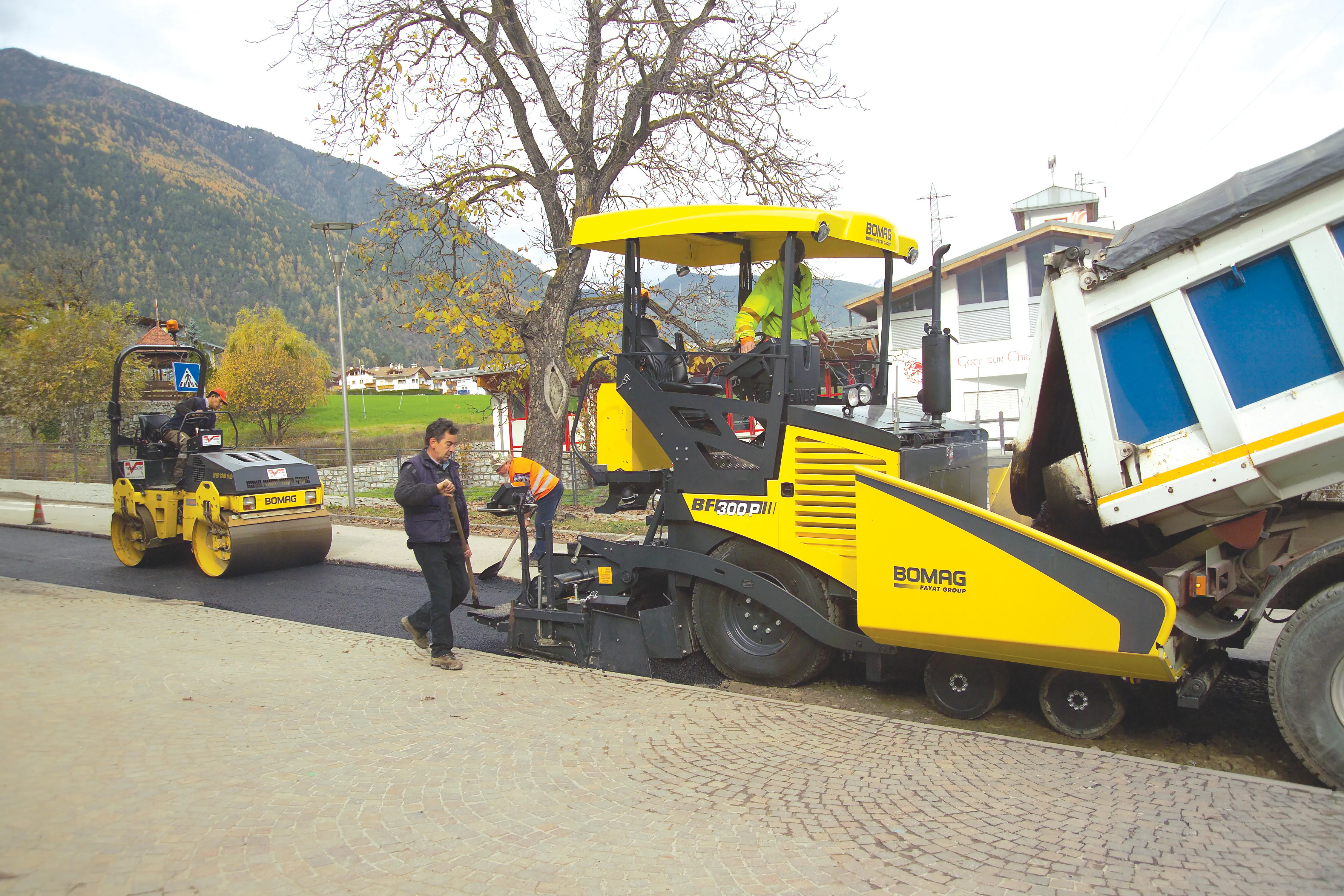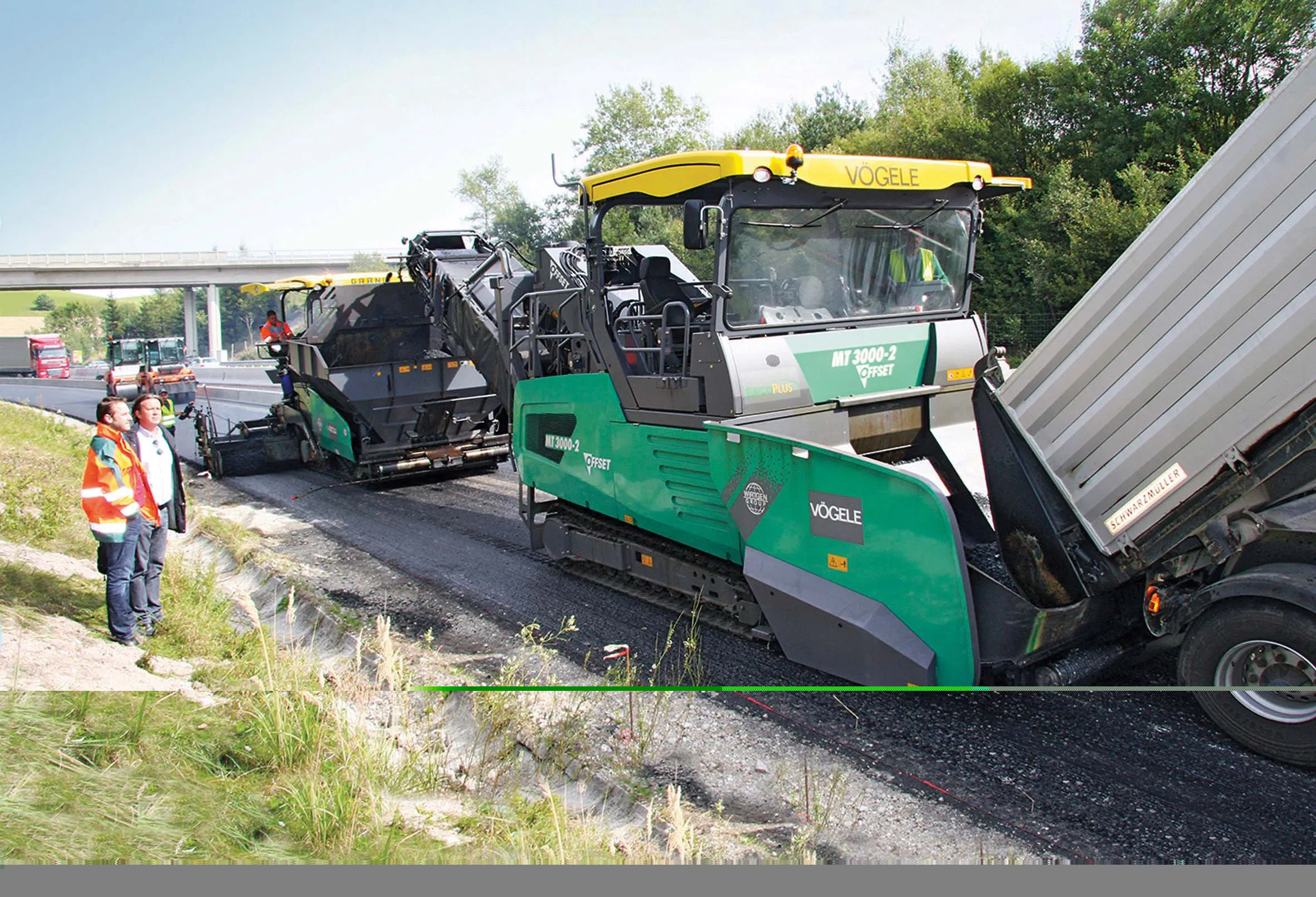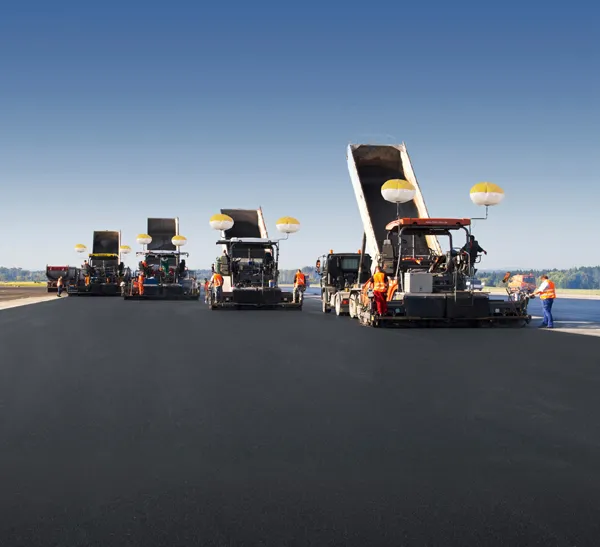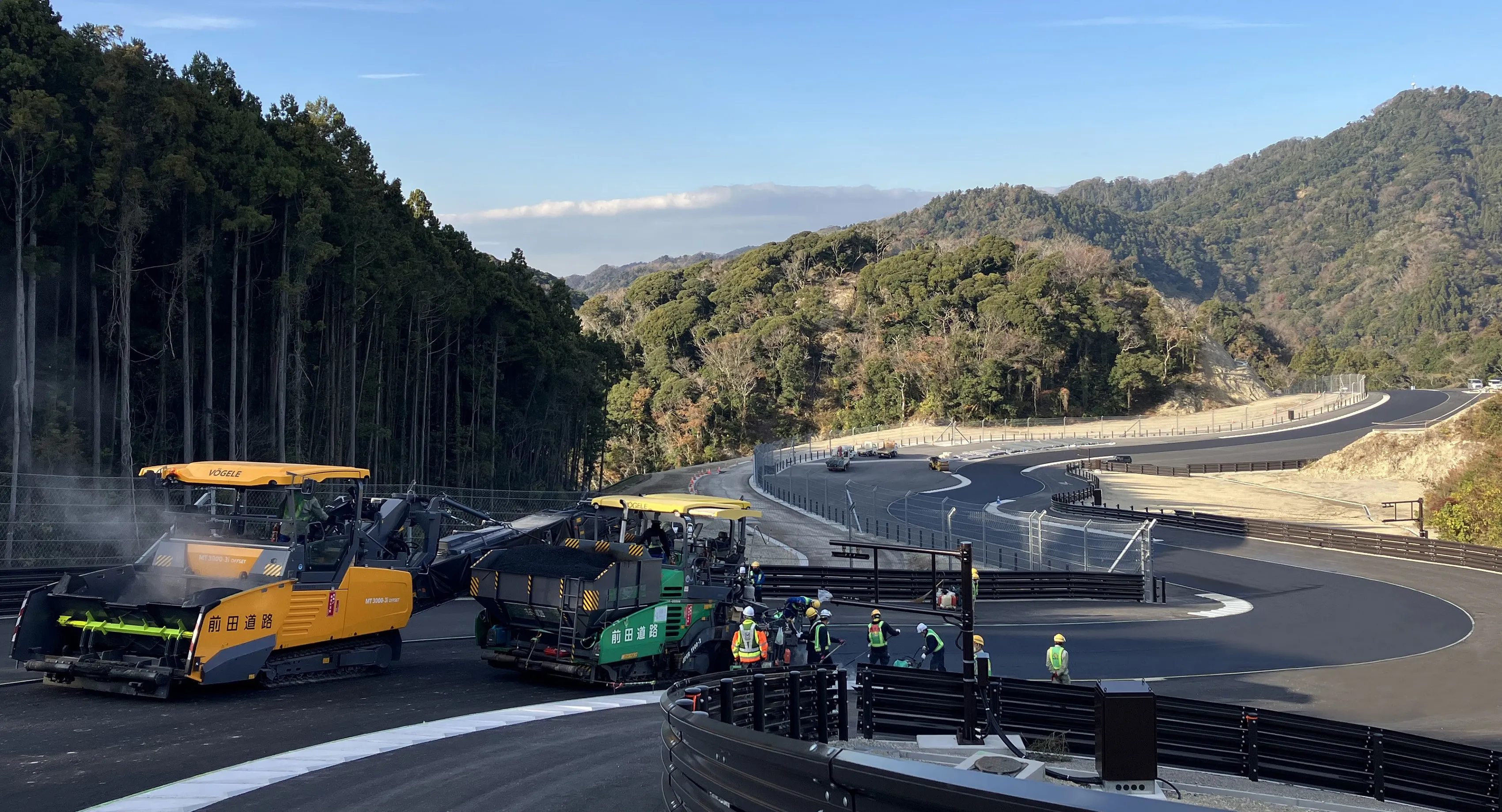The project to build a new orbital motorway to bypass the Spanish city of Barcelona has benefited from the use of the world's largest asphalt paver. This represents one of the first jobs in Europe for the power paver, Vögele's SUPER 3000-2, which was first launched at the Bauma exhibition in Munich in 2010.
February 20, 2012
Read time: 3 mins
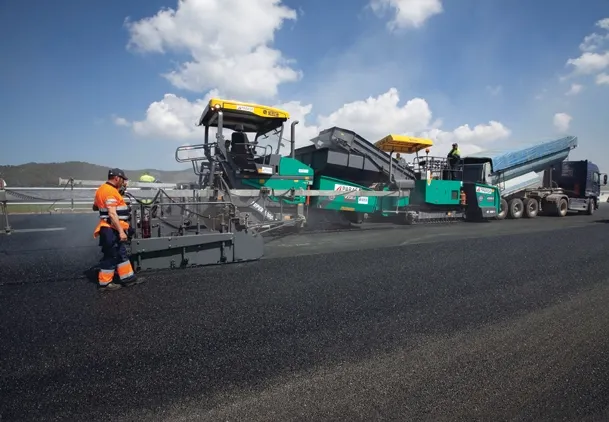
The project to build a new orbital motorway to bypass the Spanish city of Barcelona has benefited from the use of the world's largest asphalt paver. This represents one of the first jobs in Europe for the power paver, 1194 Vögele's SUPER 3000-2, which was first launched at the 688 Bauma exhibition in Munich in 2010.
The project is an important one for the region and construction of the B-40 orbital motorway was a major project in every respect. With an investment volume of €1.9 billion, the roughly 50km long bypass around the Catalan capital represented one of Spain's most significant infrastructure projects. The highway runs some 25km to the north of Spain's second largest city and connects the cities of Abrera, Terrassa, Granollers and Sant Celoni. The forecast traffic volume for the roughly 50km long route is some 40,000 vehicles/day. Because of the high traffic volumes, the demands on the road structure will be high and specifications and quality standards are equally high.
The contract for the asphalt paving work was awarded to Spanish contractor Pavimentos Barcelona (Pabasa), which transported the machine to the job site immediately after delivery, where its first task awaited it: paving wearing course.
To build the new section near Viladecavalls, Pabasa used the SUPER 3000-2, a paver that is predestined for large-scale projects. The width of the job site varied from
12-18m. The pave width was from 10.5-15.5m, with the wearing course placed in one pass. However the output presented no problems for the SUPER 3000-2, which is designed for high laydown rates and large paving widths. It features a maximum laydown rate of 1,600tonnes/hour and a maximum pave width of 16m. The systems for conveying and spreading the mix, too, are designed for highest performance. Conveyors and augers ensure that the required amount of mix is available in front of the screed, even when operating at the maximum paving speed of 24m/min.
In order to ensure the supply of mix from the feed lorries to the paver, a Vögele MT 1000-1 Mobile Feeder was deployed upstream of the SUPER 3000-2. The feeder received the mix from the lorries and transferred it to the heavy-duty paver via its belt conveyor. Due to non-stop feeding of the paver with mix, paving could proceed without interruptions, making the roadworks cost-effective. Furthermore, the non-contacting transfer of mix from the feeder provides for a particularly high quality of paving.
In order to stay within the touch limits for eveness, the Pabasa team equipped the SUPER 3000-2 with two Vögele Big MultiPlex Skis, one on the right and one on the left side of the machine. The binder course served as a reference. The Big MultiPlex Ski is a sensor system operating with three multi-cell sonic sensors attached to a modular beam ranging from
5-13m in length. An average is calculated from the measured values, transmitted to the machine's system for automated grade and slope control, making corrections when necessary. The system is suited for job sites where long irregularities need to be levelled out and proved once again its suitability for use in highway construction projects.
With an average pave speed of 3-4m/min, the contractor's team achieved a very good paving result, due to the powerful paver as well as the228 Hamm compaction machines used, two HD 130 tandem rollers and a GRW 18 pneumatic-tyred roller.
The project is an important one for the region and construction of the B-40 orbital motorway was a major project in every respect. With an investment volume of €1.9 billion, the roughly 50km long bypass around the Catalan capital represented one of Spain's most significant infrastructure projects. The highway runs some 25km to the north of Spain's second largest city and connects the cities of Abrera, Terrassa, Granollers and Sant Celoni. The forecast traffic volume for the roughly 50km long route is some 40,000 vehicles/day. Because of the high traffic volumes, the demands on the road structure will be high and specifications and quality standards are equally high.
The contract for the asphalt paving work was awarded to Spanish contractor Pavimentos Barcelona (Pabasa), which transported the machine to the job site immediately after delivery, where its first task awaited it: paving wearing course.
To build the new section near Viladecavalls, Pabasa used the SUPER 3000-2, a paver that is predestined for large-scale projects. The width of the job site varied from
12-18m. The pave width was from 10.5-15.5m, with the wearing course placed in one pass. However the output presented no problems for the SUPER 3000-2, which is designed for high laydown rates and large paving widths. It features a maximum laydown rate of 1,600tonnes/hour and a maximum pave width of 16m. The systems for conveying and spreading the mix, too, are designed for highest performance. Conveyors and augers ensure that the required amount of mix is available in front of the screed, even when operating at the maximum paving speed of 24m/min.
In order to ensure the supply of mix from the feed lorries to the paver, a Vögele MT 1000-1 Mobile Feeder was deployed upstream of the SUPER 3000-2. The feeder received the mix from the lorries and transferred it to the heavy-duty paver via its belt conveyor. Due to non-stop feeding of the paver with mix, paving could proceed without interruptions, making the roadworks cost-effective. Furthermore, the non-contacting transfer of mix from the feeder provides for a particularly high quality of paving.
In order to stay within the touch limits for eveness, the Pabasa team equipped the SUPER 3000-2 with two Vögele Big MultiPlex Skis, one on the right and one on the left side of the machine. The binder course served as a reference. The Big MultiPlex Ski is a sensor system operating with three multi-cell sonic sensors attached to a modular beam ranging from
5-13m in length. An average is calculated from the measured values, transmitted to the machine's system for automated grade and slope control, making corrections when necessary. The system is suited for job sites where long irregularities need to be levelled out and proved once again its suitability for use in highway construction projects.
With an average pave speed of 3-4m/min, the contractor's team achieved a very good paving result, due to the powerful paver as well as the


